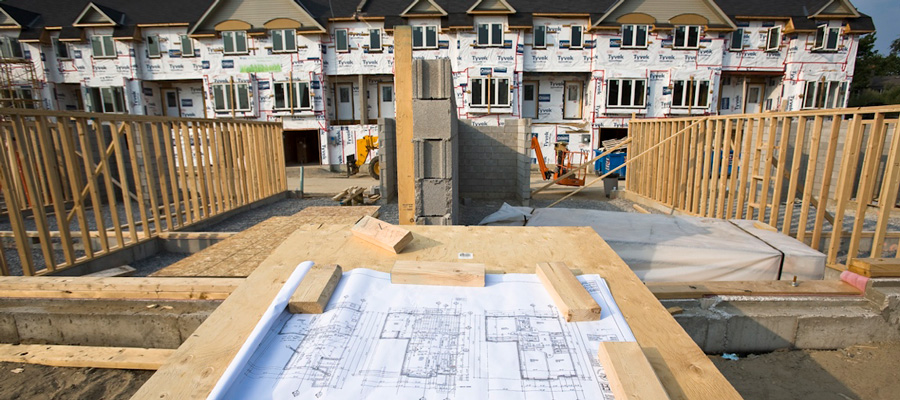BC Budget 2018 should use progressive tax options to deliver on affordable housing promises

BC’s real estate boom has created winners and losers and has led to a growing housing affordability crisis with tremendous social and economic consequences.
Metro Vancouver continues to have a massive housing affordability problem—in both home ownership and rental markets—that threatens to undermine the region’s long-term prosperity. Moreover, the 2017 Homeless Count revealed that homelessness in Metro Vancouver is up 30% from 2014, and shockingly, that one in five homeless people were employed full- or part-time.
When the previous BC government brought in a 15% foreign buyer tax in August 2016, Metro Vancouver’s housing market paused with a drop in real estate transactions and a dip in prices at the high end of the market. More recently, however, average home prices have returned to their upward trajectory, up 17% in September 2017 (compared to the same month last year). Rental housing stock has also become more expensive due to extremely low vacancy rates.
BC Budget 2018 needs to launch a comprehensive housing affordability plan for Metro Vancouver and other parts of BC facing affordability challenges. The September BC Budget Update made a modest down payment with a commitment to build a total of 3,700 new housing units (1,700 affordable rental and 2,000 modular units to house the homeless). This half-billion dollar investment in new housing is much needed, but these amounts are spread over three to four years and cover the entire province not just Metro Vancouver where the affordability crisis is most acute.
The February budget needs to make stronger annual commitments toward the new government’s election promise of 114,000 new units over ten years and finance a diverse range of housing options.
The February budget needs to make stronger annual commitments toward the new government’s election promise of 114,000 new units over ten years. A diverse range of housing options, from housing for people who are homeless to assisted living and residential care for seniors to innovative tenure arrangements like community land trust models, could be financed. This build-out should focus primarily on rental housing and include a spectrum of housing options that work for people with different incomes and at different stages in their life. The lion’s share, however, should be focused on social and co-op housing.
A housing commitment to build 11,400 units per year translates into an annual public investment of about $3 billion per year although this amount could decrease if public land owned by local governments or the BC government is contributed. This upfront capital cost, however, would be more than paid back through the flow of rental income over the lifespan of the buildings.
In addition, Budget 2018 should support and upgrade existing affordable housing stock through a Housing Renewal Fund. In particular, cooperatives and social housing run by non-profits, as well as interventions in the private rental market, are needed and could be combined with energy-efficiency retrofit programs.
To finance these essential housing investments, and to make the tax system fairer, let’s make the property tax system progressive: a property surtax of 0.5% on home values between $1 million and $1.5 million, 1% between $1.5 million and $2 million, and 1.5% between $2 million and $3 million, and 2% above $3 million. Such a progressive property tax on all residential properties, regardless of whether or not the owner resides in BC, would raise substantial revenues—about $1.7 billion per year in Metro Vancouver alone—to support an ambitious affordable/social housing construction plan while tackling growing wealth inequality.
Another way to make the property tax system more progressive would be to reformulate the $800 million per year Home Owner Grant (HOG) into a housing grant that would go to owner and renter households alike and be linked to income. That is, it could be designed to provide greater help to low-income households then phased out gradually as household income rises (as is the case for Old Age Security or the Canada Child Benefit).
The property tax system could be made more progressive by reformulating the Home Owner Grant into a housing grant linked to income.
This new housing grant would level the playing field between renters and owners. For example, the government has promised a renter’s rebate of $400 per year (at an estimated cost of about $200 million per year) while currently all homeowners receive $570 per year in the HOG. Shifting to a new housing grant would eliminate the HOG for the wealthiest households in order to provide a grant to renters.
In regards to other actions taken by the previous BC government to address affordability, the February budget should maintain the 15% property transfer tax on foreign purchases of residential real estate in Metro Vancouver. This should be viewed as part of a broader, long-term plan to manage the local housing market in the interests of those who live and work in the city. The foreign buyer tax should be extended to all parts of BC.
On the other hand, the budget should end the HOME partnership program of interest-free loans to first-time buyers (for five years with the loan repaid with interest over the following 20 years). The new program was widely and rightly panned by economists when announced in December 2016 for the same reasons it won praise from developers and the construction industry: it artificially boosts the market by encouraging new buyers to take on increased household debt.
In the lead-up to the February budget, eyes will also be on the federal government, which is set to release a National Housing Strategy (any time now). It is not clear how much (if any) new funding for housing will be allocated to the strategy. Now that all levels of government are talking about new affordable housing investments, hopefully 2018 will see a return to partnerships for a multi-decade housing build out to address the crisis.
